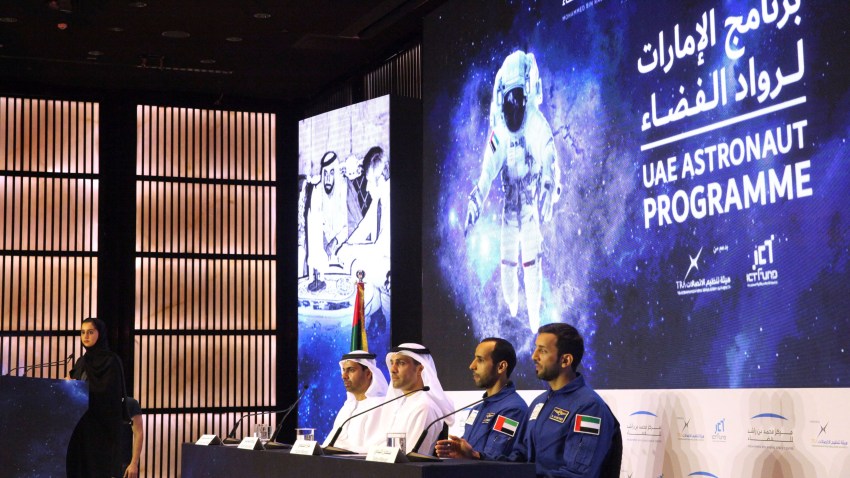The Gulf Cooperation Council states are on a transformative journey, tapping into sectors like renewable energies, sports, entertainment and tourism to diversify their traditionally hydrocarbon-dependent economies. This path has already led them to broaden their diplomatic horizons beyond their own territorial limits. Now, with space as their next grand venture, it is taking them beyond the very bounds of Earth itself.
The GCC states’ ambitious space programs are driven by domestic economic ambitions and commercial interests, with key ongoing projects like the futuristic smart cities of Masdar City in the United Arab Emirates and NEOM in Saudi Arabia relying on space applications and AI technologies. But the emerging space race is also a matter of national pride. Countries like the UAE and Saudi Arabia aim to advance their space programs to enhance their global prestige and soft power. Both have made big moves in the space sector to complement their respective long-term visions, but also as part of a competitive rivalry.
The UAE showcased its early ambitions to be a regional leader in the space sector, hosting the Arab Space Cooperation Program alongside 10 other states in 2019. Since then, it has mapped out numerous projects that underpin its long-term space ambitions. In 2020, it announced a 100-year plan to build the first habitable human settlement on Mars by 2117. The following year, it put a spacecraft into Mars orbit, where it remains. Abu Dhabi also plans to launch an asteroid mission in 2028, flying a spacecraft past seven asteroids in the main asteroid belt by 2034.

